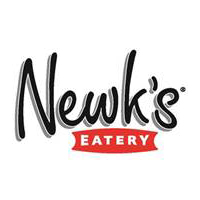Boosting productivity and ensuring well-being at work go hand in hand. Teams perform their best when they feel supported, energized, and mentally focused. It’s a reality backed by science and practical success stories.
From simple routine changes to innovative technologies reshaping how we work, there are clear strategies that anyone can adopt. Here are a few examples of what it takes to optimize performance while creating a healthier, happier environment for everyone involved.
Building a Culture That Prioritizes Employee Well-Being
Creating a workplace where well-being thrives requires intentional efforts and consistent practices. When employees feel valued and cared for, productivity naturally follows.
Key approaches include:
- Offering flexible work options that balance personal and professional life. A lack of flexibility is one of the main reasons employees resign, so it matters
- Encouraging open communication to ensure employees feel heard and understood
- Recognizing achievements regularly to build morale across the team
- Providing mental health resources like access to counselors or stress management workshops
Leaders set the tone by modeling these behaviors. Simple actions such as taking regular breaks or openly discussing wellness priorities make an impact. It’s about making care part of daily operations, not just policies written down.
How Nutrition and Fitness Impact Mental and Physical Performance
What employees eat and how active they are directly affect their energy levels, focus, and mood. Supporting healthier choices can lead to noticeable improvements in workplace productivity.
With this in mind, you can:
- Provide healthy snack options at work to promote sustained energy during the day
- Organize team fitness challenges or sponsor gym memberships for added motivation
- Educate teams on simple nutritional changes that boost cognitive function, like reducing processed sugar intake
Small habits matter over time, as demonstrated in the Keltie O’Connor productivity case study, where the use of a nootropic supplement for 30 days showcased measurable gains in focus, mental clarity, and overall productivity. It’s a way of simplifying the process of hitting nutritional goals for busy professionals.
Put simply, a well-fed, active workforce stays more alert, handles stress better, and collaborates effectively throughout the day.
Practical Changes to Improve Daily Routines at Work
Optimizing routines doesn’t have to be complex. Modest, consistent adjustments help employees work smarter and maintain focus longer.
To achieve this:
- Encourage shorter, focused meetings to save time and energy for key tasks
- Promote the use of task prioritization methods like the Eisenhower Matrix for better workload management
- Introduce short breaks between tasks to reset mental energy and prevent fatigue
- Set clear expectations on work hours to avoid overworking and improve balance
Streamlined routines reduce unnecessary stress. Teams that manage their time effectively spend less on distractions, focusing more on meaningful work that drives results.
The Role of Technology in Enhancing Workforce Productivity
Smart tools and platforms simplify workflows, boost collaboration, and reduce time wasted on repetitive tasks. Embracing technology tailored to your team’s needs can transform productivity.
To this end, you must:
- Use project management software like Trello or Asana to keep everyone aligned on priorities
- Implement communication tools such as Slack or Microsoft Teams for seamless collaboration
- Automate routine tasks like data entry with platforms that integrate easily into existing systems
- Offer virtual wellness programs using apps focused on mindfulness practices, fitness tracking, or stress reduction
Technology supports teams by removing bottlenecks and improving efficiency. Accessible solutions empower employees to work smarter while staying engaged and productive throughout their day.
Simple Cognitive Tools to Help Teams Stay Focused and Sharp
Mental clarity and focus are essential for sustained productivity. Integrating easy-to-use cognitive tools into daily work routines can make a significant difference.
Some proven approaches include:
- Using focus timers, such as the Pomodoro Technique, to break tasks into manageable chunks
- Encouraging journaling or note-taking apps to help organize thoughts and ideas efficiently
- Promoting mindfulness practices through guided meditation apps that reduce stress and enhance concentration
- Suggesting brain-training games that challenge memory and problem-solving skills in an engaging way
These tools require minimal effort but yield lasting results. They empower employees to tackle demanding tasks with better focus, keeping teams sharp throughout their day.
Wrapping Up
Prioritizing productivity and well-being is good for employees and drives success across organizations. Businesses create environments where teams thrive by embracing practical strategies, supporting healthy routines, and leveraging smart tools.
Seemingly superficial changes lead to meaningful impacts that empower individuals while building stronger, more resilient workplaces for the future.







